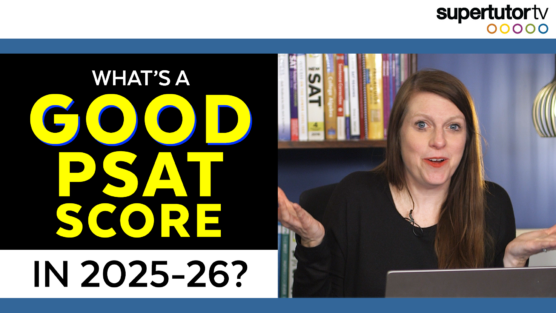There are still a lot of questions surrounding the new, digital SAT. For example, how will this new test comply with truth in testing laws? In this blog, we’ll go over what these laws could mean for the SAT.
As many of you might know, one of the most valuable tools for test prep is previously released exams. For the SAT, this is a QAS (Question-and-Answer Service). For the ACT, it’s TIR (Test Information Release). These exams, which can be mailed to students or released online after an exam, allow students to go over several things: a full copy of the entire test, the answer choices they put, the correct answer choices for those questions, an answer key, and the formula they used to calculate your raw and final score.
Current Changes
While the ACT will continue to release TIRs, the SAT has announced there will be no QAS with its new exam. The reason College Board gives is that the new test is adaptive. This means that after you’ve taken one section of the test, the next section’s difficulty will depend on how well you’re doing. If you’re doing very well, you will get a more difficult section. If you aren’t performing that well, you’ll get a less difficult section. This means that College Board will pull from a large pool of questions, as opposed to having one, single test form. If they mix up the test questions, it will also help with cheating concerns. The person next to you won’t be looking at the same questions.
In this current predicament, College Board will have to re-use these test questions on different test dates with different students. If they want to reuse these questions, then they won’t want to release them and give them away to everybody.
Truth in Testing Laws
In 1980, legislation had passed in both New York and California requiring test makers to provide certain information to students. These laws, called Truth In Testing laws, required standardized test makers to release exams so students could go over what material is on the test and what types of questions they were getting wrong. After these two state laws took effect, College Board decided to make a national policy going forward.
With a new SAT, it seems College Board is changing its national policy. However, New York and California both still have laws on the book. We took a look at these state laws to determine what College Board still owes students taking the exam in these two states. Please note that we are not lawyers, and this is not legal advice!
Truth in Testing in California
California’s law is only applicable to tests required by institutions of higher learning for undergraduate education. Many schools in California are currently test-optional or test-blind, but College Board would probably like for them to require the test again. If that’s the case, College Board may try to comply with this law to the best of their ability to inspire schools to go back to requiring the test.
The law states that 50% of regular administrations of the exam need to be disclosed. There are actually two ways they can do this. One is the way we know and love, a QAS. However, they can also meet this demand by allowing students to go to a specified, closely-monitored location to view their exact test within 90 days of the test date. If the College Board allows students this opportunity, then they don’t have to let you take a copy of the test home with you.
Our guess is the College Board may keep this option if they get rid of the QAS. Previously, College Board released a statement for California test-takers saying they could review their results by going to Sacramento. We’re not sure if this is the only way Californians can take advantage of this service. However, it’s important to note a student in LA or San Diego isn’t likely to hop on a plane to Sacramento to review their test. We don’t know if this is how College Board will continue to comply with truth in testing laws, but it does seem problematic.
Truth in Testing in New York
The New York law includes graduate exams such as the MCAT and the GRE. These exams have been digital for a while, and we know how New York has responded. This gives us more predictive power to know how College Board may attempt to comply.
Right now, the GRE offers a $50 Question-and-Answer Review Service for New York state test takers only. You can take advantage of this service by taking the GRE one of the 8 weeks listed on their website. Then, you have a 30-day window to make an appointment at a New York test center to review your answers. You do have to go in person to take advantage of this. College Board may follow this procedure for the new SAT.
The New York law currently carves out that the SAT I only has to disclose four test sittings. In the past, the law also exempted the SAT II, which recycled questions on its test forms. Finally, New York also carved out an exception from 1994-1999 for the GRE when it went online. The GRE didn’t have to disclose any test questions for 2 years. Another prediction is College Board asks for a transition period, so they don’t have to disclose test questions right away.
Predictions
Given the current laws, College Board will probably allow, in a potentially difficult manner, for students in California and New York to review their specific tests in a secured environment. You won’t be able to take tests home and share them. This means that students will not have a robust repository of free study materials beyond what is available on Khan Academy. It will reduce the amount of prep material you have. This also may limit your ability to review a large number of old, real tests. It will be harder to practice intensely for the SAT. This may mean spending more on test prep materials beyond what the College Board will offer.




